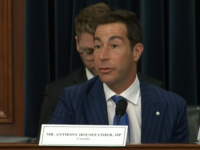The Law Bytes podcast returns with a special episode focused on combatting online anti-semitism with a particular emphasis on an incident involving the department of Canadian Heritage and Laith Marouf, a well known anti-semite. As part of Heritage’s anti-hate program, the government had provided funding to the Community Media Advocacy Centre (CMAC), led by Marouf, to develop an anti-racism strategy for Canadian broadcasting. While there was years of evidence of Marouf’s anti-semitism, the department didn’t look or didn’t find it. The contract was cancelled after a public outcry, but even that led to concerns as it was left to Jewish MPs such as Anthony Housefather, Ya’ara Saks, and Melissa Lantsman to say something while many others remained silent.
Anthony Housefather, a Liberal MP from Montreal, not only spoke out on the Marouf situation but also called on all MPs to become more vocal. Housefather has been working on the online anti-semitism issue with politicians from around the world as part of an Inter-Parliamentary Task Force on Online Antisemitism and he joins me on the Law Bytes podcast to talk about the work of the task force and its recent hearing in Washington, DC, the Marouf incident, and the urgency for all to speak out more aggressively against anti-semitism.











